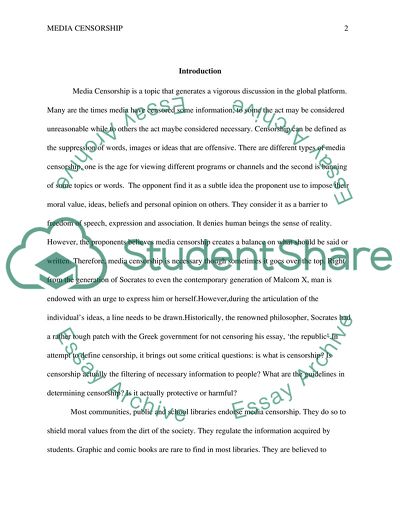Cite this document
(“Media Censorship Essay Example | Topics and Well Written Essays - 1750 words”, n.d.)
Retrieved de https://studentshare.org/media/1701211-media-censorship
Retrieved de https://studentshare.org/media/1701211-media-censorship
(Media Censorship Essay Example | Topics and Well Written Essays - 1750 Words)
https://studentshare.org/media/1701211-media-censorship.
https://studentshare.org/media/1701211-media-censorship.
“Media Censorship Essay Example | Topics and Well Written Essays - 1750 Words”, n.d. https://studentshare.org/media/1701211-media-censorship.


